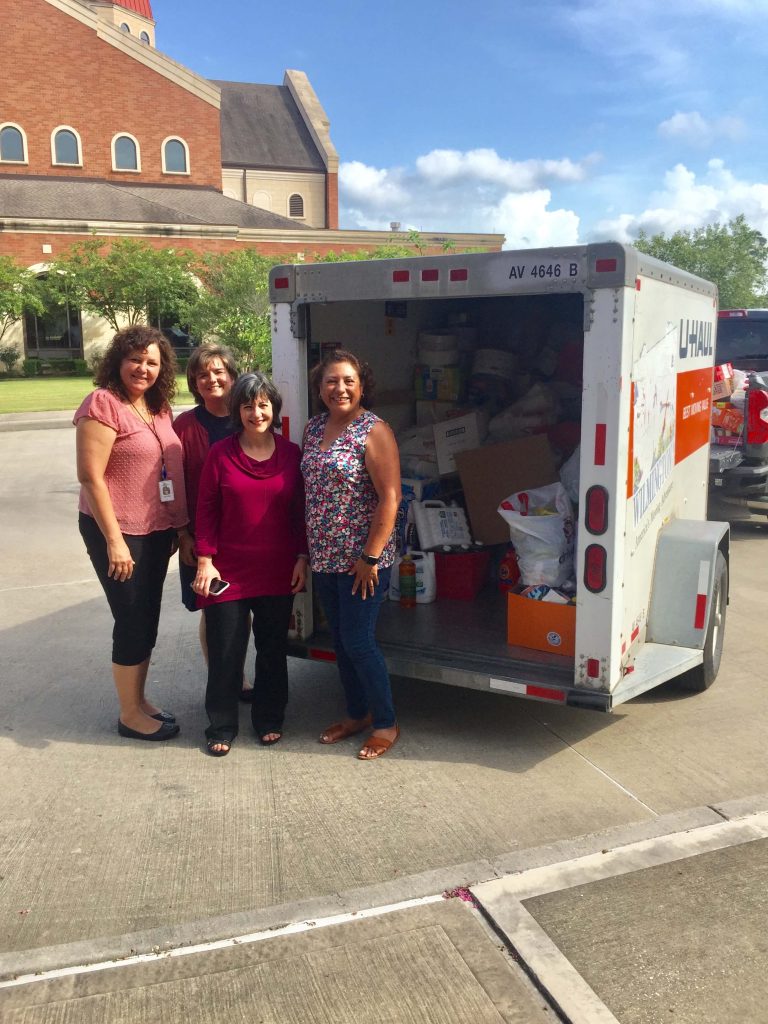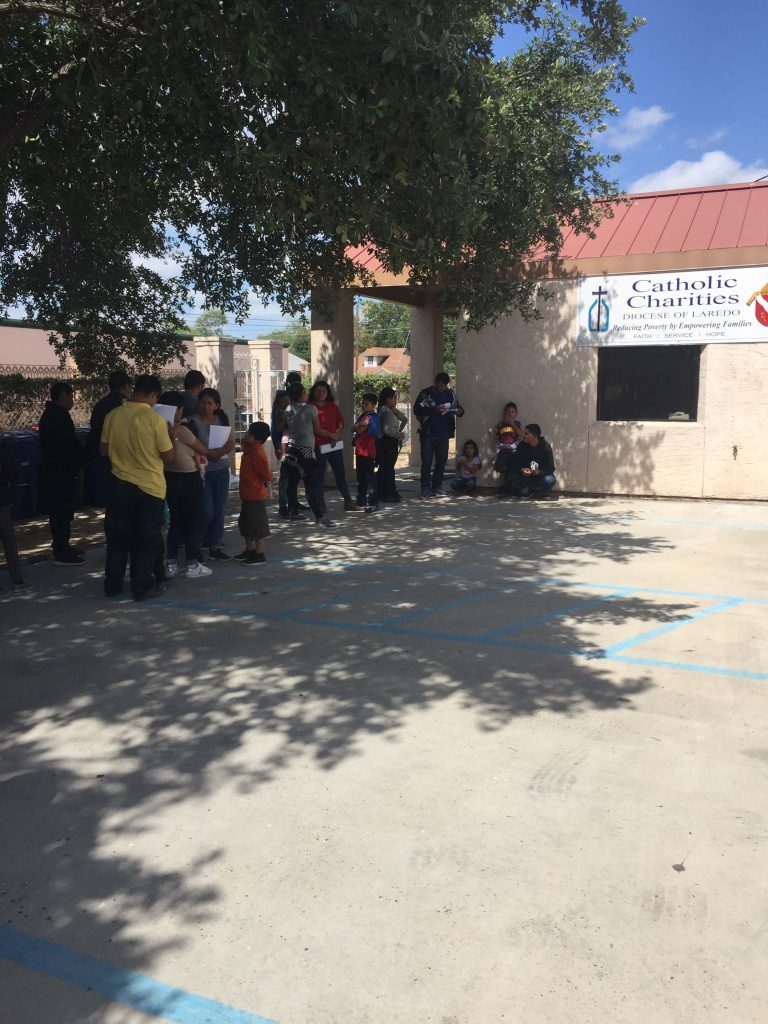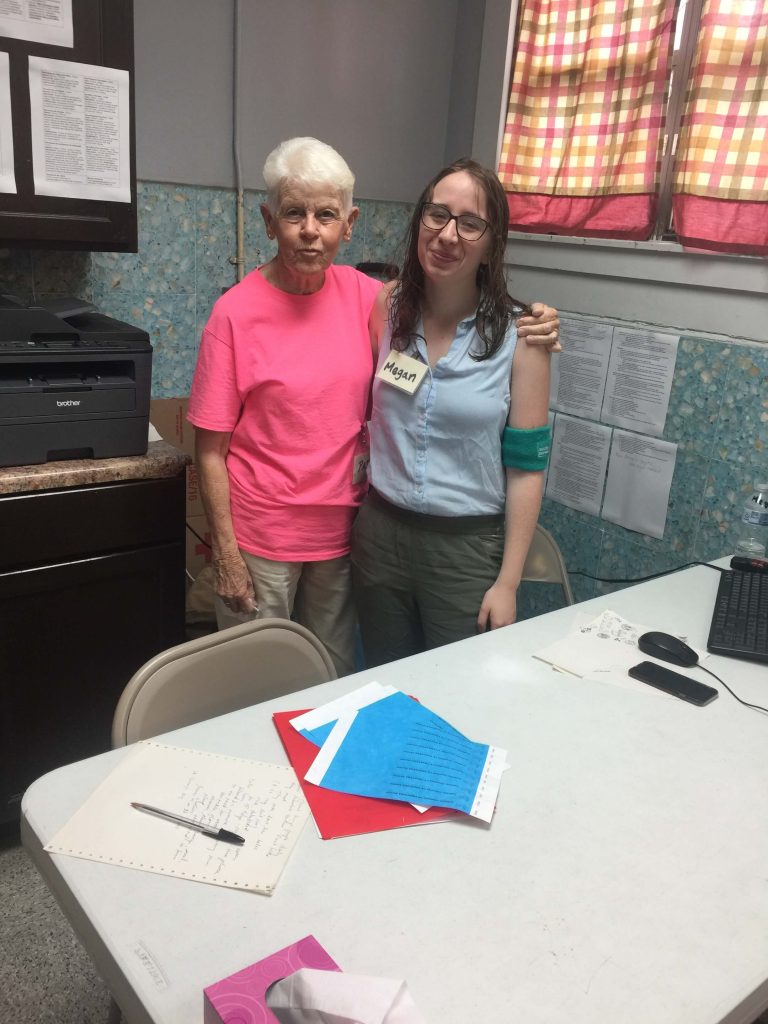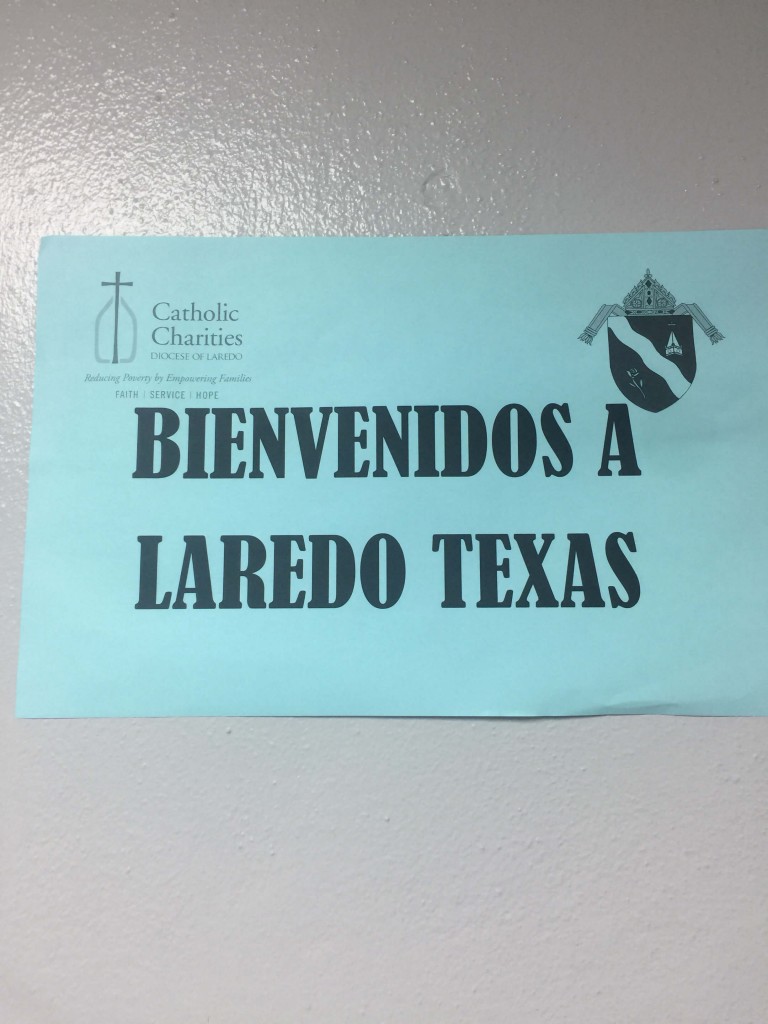Thank you for your assistance to the migrant children and families at the border town of Laredo, Texas. Ana and I left Humble for Laredo Friday July 5 and returned Saturday night July 6. It is 334 miles from Humble to Laredo, taking Highway 59 all the way.
The Border Patrol brings 250 persons per day to the Catholic charities office that was turned into a shelter.
This is a sample of what we heard from both volunteers and migrant families at the Laredo shelter.
A migrant is someone who left their homeland because of fear and hope for a better life. The parents and children we met all came from Central America: Honduras, El Salvador, Guatemala and Nicaragua.
The families we met traveled for days and sometimes weeks. They reached the southern side of the Rio Grande. At some point, they decided to cross the river. If a mother or father crossed with a small child, the child is first taped or tied together with the parent, so that the child does not get separated and drowned by the strong under tow.
Once they cross the river, they are met by U.S. Customs Border Patrol officers. These are the first people migrants meet upon crossing the border. Men and women spoke of spending several days in the border patrol facility. Hair ties, belts and shoe laces are removed; a foil blanket is provided. They sit on the floor in a crowded space. There is a toilet but bathing and hygienic needs are not addressed. The majority are parents and children. We were told that no single adults were processed. We saw only children and usually one parent at the Catholic Charities office.
Migrants are taken from the border patrol station to a detention facility. There they provide the names of relatives or family who will sponsor them. They are given a document noting the court date and address nearest to the residence of the family member with whom they will be staying. They are then transported to Catholic Charities in Laredo.
Upon arrival at Catholic Charities, a volunteer doctor and volunteer staff member evaluate their physical condition. Some have not eaten for weeks. Most are dehydrated. Their traveling information and the phone numbers of relatives at the point of destination is entered into a data base.
The child and parent move on to a small clothing room. Children’s clothing is folded or hung in size order. The same is true for women and men’s clothing. Each person is allowed to pick out one shirt, one pair of pants, one pair of socks and one pair of underwear.
With clothing in hand, they move to care for personal hygiene. Most have not showered or brushed their teeth for weeks. After a shower, and a change of clothing, they call their sponsoring relative. The relative pays for a bus ticket. (Plane tickets are avoided. It has happened that persons changing planes in stop overs like Dallas have been returned to detention and deported to their country or origin.)
Megan is a volunteer. She teaches second grade in Portland, Oregon. She convinced her boyfriend to accompany her to the Texas border. He is handy with woodworking, and was able to construct some shelves used at the facility. I asked her what most impacted her about her work with migrants at the Texas border. She said, “Once people take a shower and change their clothes, they seem transformed.”
Sister Pat Erikson is a Dominican from San Diego California where she lives and works with the San Diego Rapid Response Network. “Shelters,” she said, “are places where people feel safe for the first time in months.”
Both Megan and Pat said they would welcome any contact you might like to have with them. Megan’s email address is meganxfitz@gmail.com and Pat’s email address is erickson429@earthlink.net.
Volunteers are needed at catholic Charities in Laredo, Texas.
If you can use a computer and work the phones, there is plenty to do. You do not need to speak Spanish, although it couldn’t hurt. I tried my hand at sorting and folding clothes. I couldn’t do that very well either.
Donations are needed.
Small sized clothing for adults, teens and children are requested. They can be sent via mail.
The address is
Catholic Charities
Diocese of Laredo
1616 Callaghan Street
Laredo, Texas 78046.
If anyone is interested in driving to Laredo, please let us know. Thanks to the magic of Facebook, we got more donations than we could fit in our packed U Haul. Call and arrange a pickup. You can bring some of the surplus supplies.
Of course, monetary donations are accepted as well. These can be sent to the same address and made out to Catholic Charities, Diocese of Laredo.
Thank you for your generosity.
“Whatsoever you do to the least of my sisters and brothers, that you do onto me.”




